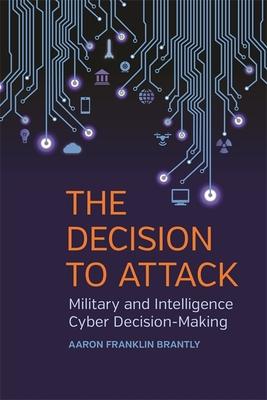The debate over cyber technology has resulted in new considerations for national security operations. States find themselves in an increasingly interconnected world with a diverse threat spectrum and little understanding of how decisions are made within this amorphous domain.
With The Decision to Attack, Aaron Franklin Brantly investigates how states decide to employ cyber in military and intelligence operations against other states and how rational those decisions are. In his examination, Brantly contextualizes broader cyber decision-making processes into a systematic expected utility-rational choice approach to provide a mathematical understanding of the use of cyber weapons at the state level.
Discussed:
The Key Concepts of Cyber
The Motivation and Utility for Covert Action
Digital Power
Anonymity and Attribution in Cyberspace
Cyber and Conventional Operations:
The Dynamics of Conflict
Defining the Role of Intelligence in Cyberspace
How Actors Decide to Use Cyber--a Rational
Choice Approach
Cognitive Processes and Decision-Making
in Cyberspace
Finding Meaning in the Expected Utility of
International Cyber Conflict
